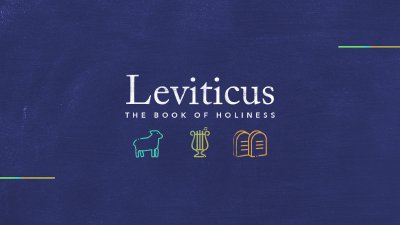Connor continues our Leviticus series by looking at the animals God defined as clean, which could be eaten by the Israelites. God also spelled out certain unclean animals that were not to be eaten or their dead carcasses touched by his people. It harkens back to Genesis when God told Adam and Eve they could eat everything in the garden except the fruit from the Tree of Knowledge. The food laws of Leviticus were God giving his people an eternal truth, a reminder about himself – who he is, what he expects, and his desire for their life. Then came Jesus and what he did on the cross. We’re still unclean animals, but the sacrifice of Jesus makes us clean. We need to stay away from sin. But because of God’s cleansing power, we’re forgiven for those sins.

Clean and Unclean
March 6, 2022 • Connor Kraus • Leviticus
More from
Leviticus





